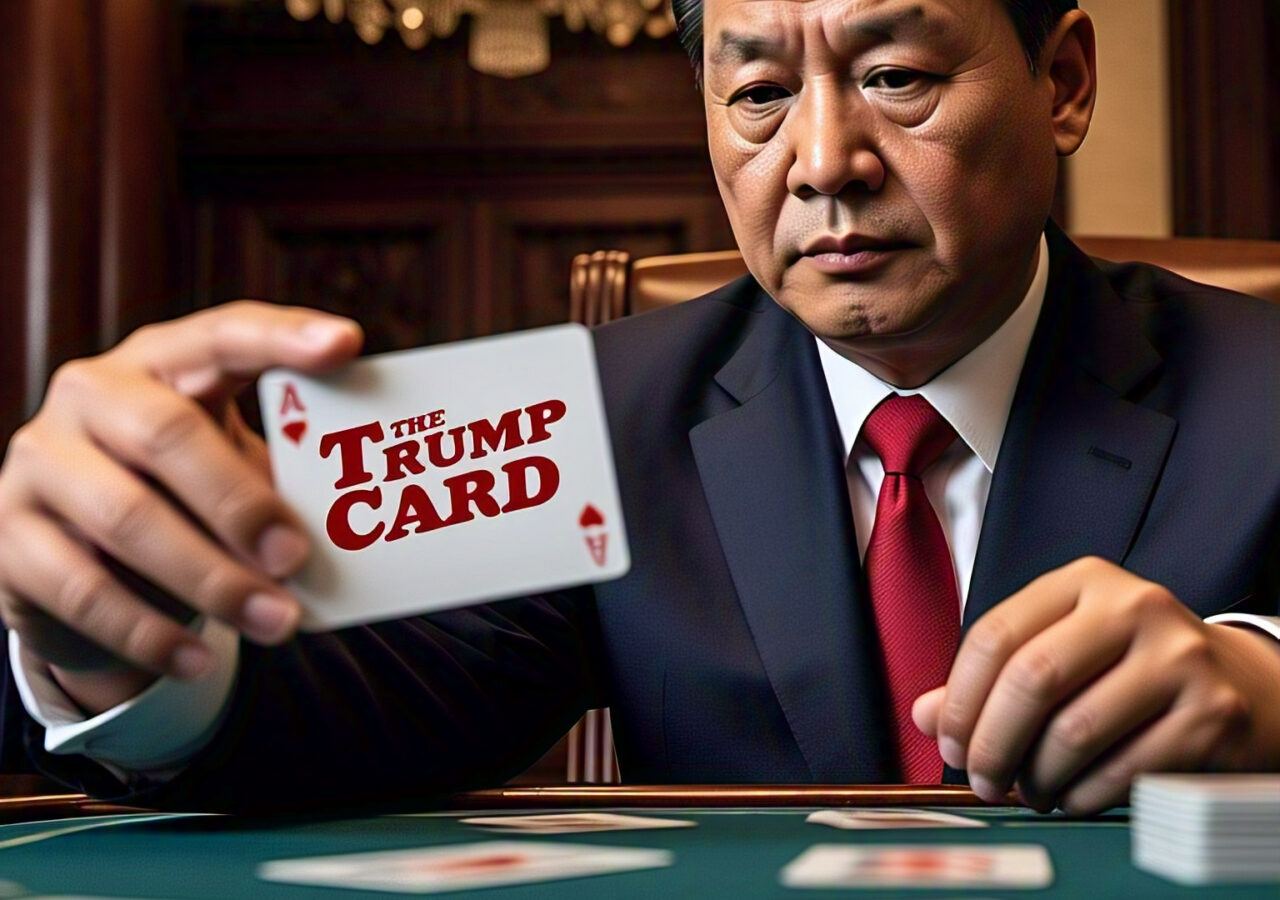China Plays Its Trump Card in the Tariff Drama
In a twist that surprises absolutely no one, Trump’s grand tariff plan hit a completely foreseeable snag when President Xi decided to flex China’s economic muscle by offloading U.S. Treasury bonds into the market. Like clockwork, this sent yields soaring, and suddenly our “master negotiator” found himself scrambling to reverse course on his technology tariffs.
China’s Bond Move: The Most Obvious Counterpunch Imaginable
China holds a staggering $759 billion in U.S. Treasuries, and anyone with even basic economic literacy could have predicted they’d use this leverage. By strategically selling bonds during U.S. market closures, Beijing effectively turned Trump’s own financial markets against him. Treasury yields promptly shot up from 3.99% to over 4.5%, a move that immediately threatened the cheap borrowing costs that underpin Trump’s entire economic agenda.
Trump’s Patented Retreat, Rebranded as Strategy
Watch the spin machine work overtime! After his apocalyptic tariff announcement caused markets to plummet, Trump predictably backpedaled faster than a politician caught in a scandal. He’s now exempting smartphones, computers, and semiconductor chips from tariffs—essentially everything that matters in the U.S.-China trade relationship. The man who wrote “The Art of the Deal” just demonstrated “The Art of the Hasty Retreat.”
The White House will inevitably claim these exemptions were the plan all along, part of some “brilliant strategy” to force negotiations. Never mind that the U.S. Customs and Border Protection quietly published the list of 20 exempted product categories at night, hoping nobody would notice this massive concession.
The Rust Belt Jobs Mirage
Let’s be honest—the manufacturing jobs Trump promised the Rust Belt aren’t materializing anytime soon. You can’t reorganize global supply chains overnight or even within a presidential term. Apple, Dell, and other tech giants aren’t suddenly building factories in Ohio or Michigan. Even Treasury Secretary Scott Bessent admitted they’re merely “hustling to onshore manufacturing” – translation: making promises they have no intention of keeping within any meaningful timeframe.
The Inevitable “Victory Lap”
When the dust settles, count on the administration to declare total victory by pointing to whatever small concessions they can extract from trading partners. The narrative is already being constructed: “Trump’s bold tariff strategy forced countries to lower their barriers to American goods!” Never mind that most of his tariffs will be walked back, and any gains will be marginal compared to the chaos created.
This performance follows Trump’s first-term tariff playbook to the letter—create economic uncertainty, watch markets panic, backtrack on the most damaging proposals, then claim victory when the crisis you manufactured doesn’t fully materialize. It’s economic theater with real consequences for American consumers and businesses caught in the crossfire.
The bond market’s reaction speaks volumes—when U.S. Treasuries aren’t even considered a safe haven during market turmoil, you know we’ve entered dangerous territory. But hey, at least we’ll get another entertaining press conference where reality gets repackaged as “winning.”
The Final Act: Framing a Trump Win
After the initial clamor and posturing, the true coup is expected to be a significant rollback of tariffs. In this calculated retreat, only small, precisely calibrated tariffs will remain—tariffs so minimal that they exert the intended trade pressure on China while leaving inflation virtually unaffected. Supported by economic research that minor import duties transmit only marginal consumer price changes, these modest tariffs will be touted as a masterstroke of trade policy.
When all is said and done, the administration is set to frame this outcome as a resounding Trump win: a victory that opened U.S. markets abroad for American goods, which had previously been stifled by large, burdensome tariffs. By strategically easing trade restrictions, the administration can now claim not only to have neutralized an external economic challenge but also to have enhanced America’s competitive stance on the global stage.
In sum, while Beijing’s audacious bond-selling may have temporarily rattled the White House’s plans, the script is all too familiar for an administration skilled in turning even setbacks into strategic victories. Ultimately, by opening up U.S. markets and recalibrating tariffs, the narrative will be spun into a clear-cut win for Trump—a win that underscores his tremendous ability to turn economic maneuvers into political triumphs.
Did You Notice?
On Friday, the administration removed tariffs on semiconductors, smartphones, and computers. The largest dollar volume was shipped in by China. Did you also see the yield (interest rates) on the 10-year treasury down significantly? Remember that the yield (interest rates) moves lower when there is buying of bonds and higher when there is selling. So, China for now has stopped selling, guessing it’s the removal of tariffs on smartphones, semi’s and computers. The winner in the stock market for now is cash. Don’t get caught in the recent rally. NOTHING HAS CHANGED! And again I told you so.

